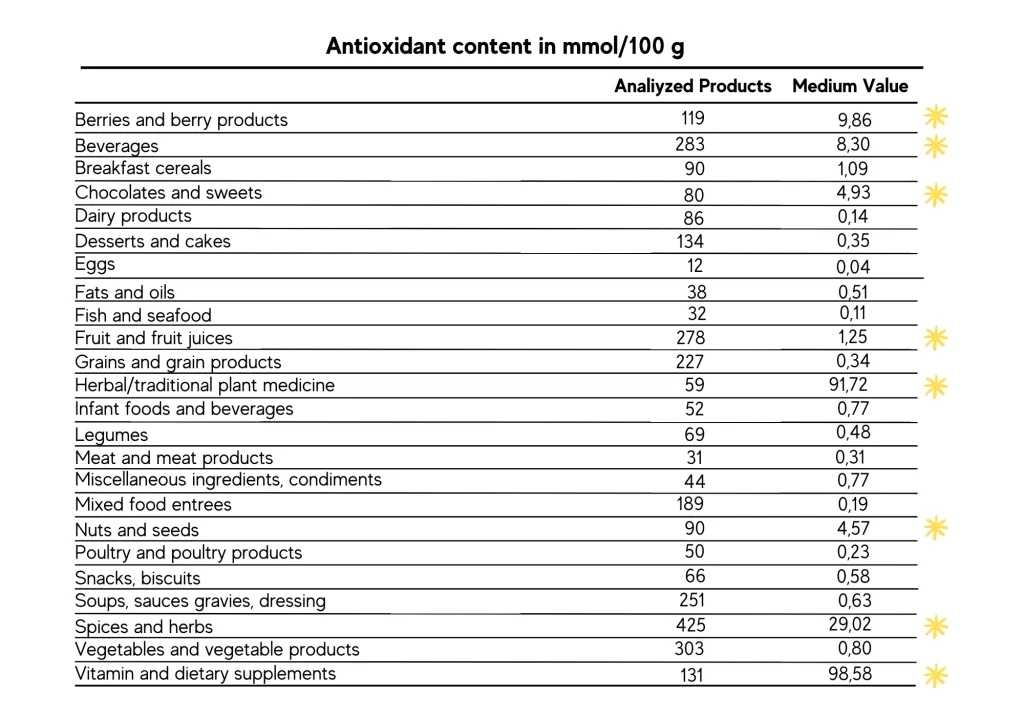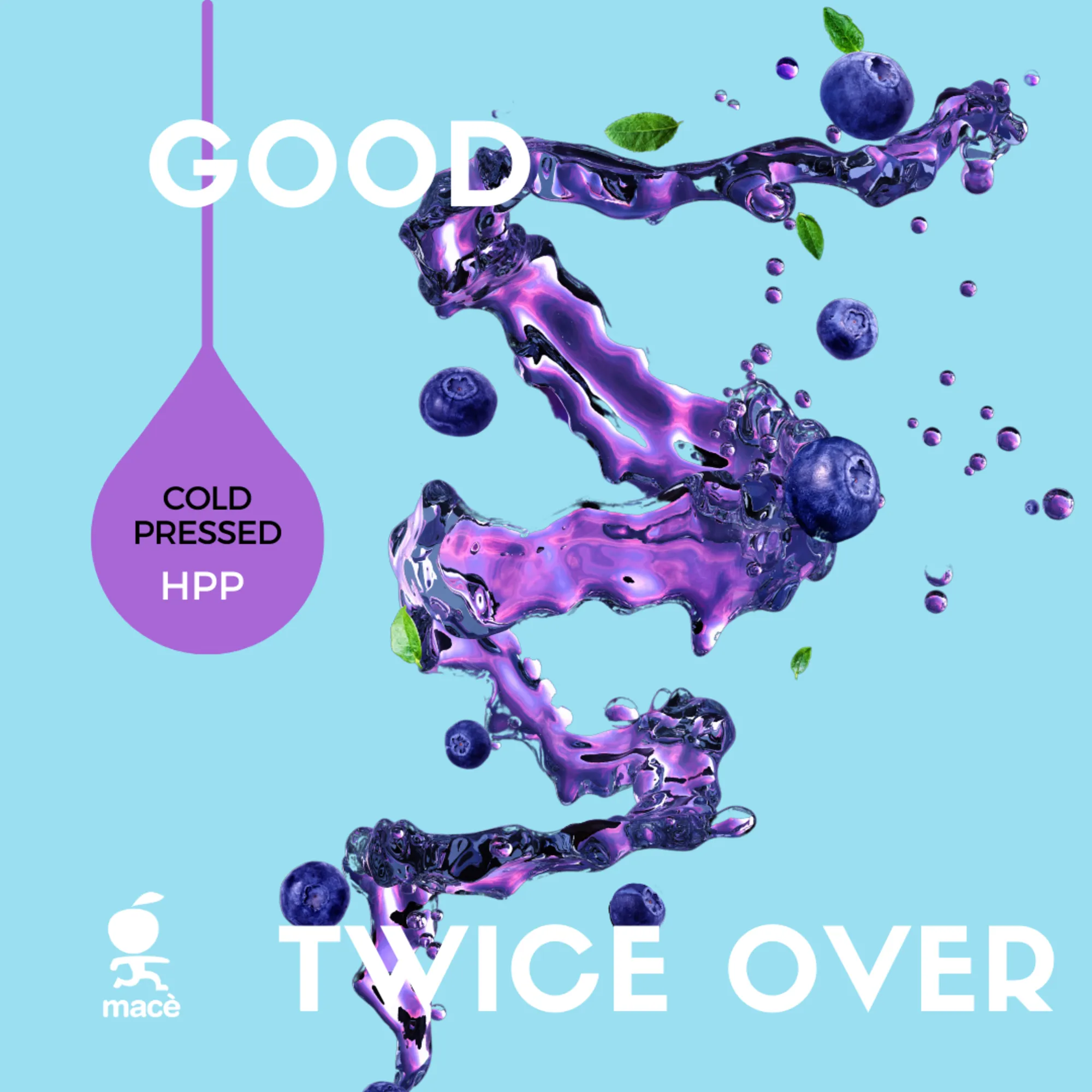It is widely accepted that a plant-based diet with a high intake of fruit, vegetables and other nutrient-rich plant-based foods protect against chronic diseases related to oxidative stress.
The study “Carlsen, MH, Halvorsen, BL, Holte, K. et al. The total antioxidant content of more than 3100 foods, beverages, spices, herbs and supplements are used worldwide. Nutr J 9, 3 (2010)” led to the creation of the most comprehensive database of antioxidant foods ever published.
Samples of each ingredient from countries around the world were acquired and analyzed to determine their total antioxidant content using a modified version of the ferric-reducing ability of plasma (FRAP) test.
The study shows beyond doubt that plant-based foods introduce significantly more antioxidants into the human diet than non-plant-based foods.
Antioxidants can scavenge free radicals which, by creating unstable reactions in the human body, contribute to the development of most chronic diseases.
In addition to acting on free radicals, antioxidants from food have beneficial health effects through other mechanisms by promoting longevity, cell maintenance and DNA repair.
The aim of the present study was to examine foods to identify the total antioxidant capacity of fruits, vegetables, beverages, spices and herbs in addition to common everyday foods.
The results obtained have become the basis for many antioxidant dietary interventions.
The table below shows the antioxidant capacity of each food expressed in mmol (millimoles) of antioxidants per 100 grams of the product.
So, does drinking an HPP Macè fruit juice give us the same results in terms of antioxidants as drinking a fresh fruit?
The answer is yes!
Macè fruit juices are not heat treated.
The fruit is selected for its quality, origin and degree of ripeness, then cold-pressed, bottled and treated at low pressure. In this way, the antioxidants present in the fruit at the beginning of the process are preserved and “made available” in fruit juice.
The entire production process of Macè HPP fresh juices is therefore ‘cold’ (never above 12°C), unlike common pasteurized juices where the high temperatures used to preserve the juice deactivate the antioxidant properties of the fruit.Macè’s juice is good in two ways: good to drink and good for your health.
Source: https://doi.org/10.1186/1475-2891-9-3



It is widely accepted that a plant-based diet with a high intake of fruit, vegetables and other nutrient-rich plant-based foods protect against chronic diseases related to oxidative stress.
The study “Carlsen, MH, Halvorsen, BL, Holte, K. et al. The total antioxidant content of more than 3100 foods, beverages, spices, herbs and supplements are used worldwide. Nutr J 9, 3 (2010)” led to the creation of the most comprehensive database of antioxidant foods ever published.
Samples of each ingredient from countries around the world were acquired and analyzed to determine their total antioxidant content using a modified version of the ferric-reducing ability of plasma (FRAP) test.
The study shows beyond doubt that plant-based foods introduce significantly more antioxidants into the human diet than non-plant-based foods.
Antioxidants can scavenge free radicals which, by creating unstable reactions in the human body, contribute to the development of most chronic diseases.
In addition to acting on free radicals, antioxidants from food have beneficial health effects through other mechanisms by promoting longevity, cell maintenance and DNA repair.
The aim of the present study was to examine foods to identify the total antioxidant capacity of fruits, vegetables, beverages, spices and herbs in addition to common everyday foods.
The results obtained have become the basis for many antioxidant dietary interventions.
The table below shows the antioxidant capacity of each food expressed in mmol (millimoles) of antioxidants per 100 grams of the product.
So, does drinking an HPP Macè fruit juice give us the same results in terms of antioxidants as drinking a fresh fruit?
The answer is yes!
Macè fruit juices are not heat treated.
The fruit is selected for its quality, origin and degree of ripeness, then cold-pressed, bottled and treated at low pressure. In this way, the antioxidants present in the fruit at the beginning of the process are preserved and “made available” in fruit juice.
The entire production process of Macè HPP fresh juices is therefore ‘cold’ (never above 12°C), unlike common pasteurized juices where the high temperatures used to preserve the juice deactivate the antioxidant properties of the fruit.Macè’s juice is good in two ways: good to drink and good for your health.
Source: https://doi.org/10.1186/1475-2891-9-3
